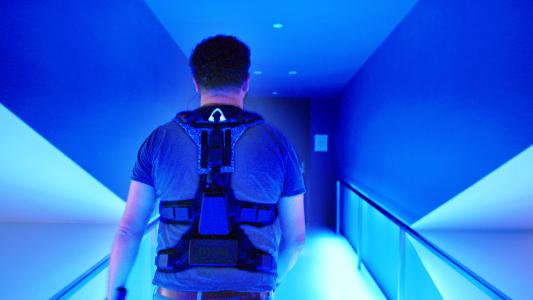From baseball-sized hailstones to tornadoes traveling at 70 mph, Earth’s extreme weather is, well, pretty damn extreme.
Most people make it a point to steer clear of these potentially deadly phenomena, but some seek them out, putting themselves in harm’s way for a shot of adrenaline (and sometimes for the money, not the science).
Now, there’s another option.
On August 18, Microsoft released a new flight simulator that replicates real-world weather conditions — and less than a week later, virtual storm chasers have been using it to fly directly into Hurricane Laura.
Microsoft’s New Flight Simulator
Flight simulators are an essential part of pilot training, providing trainees with a risk-free way to learn how to operate an aircraft.
Microsoft’s new flight simulator is designed for entertainment, not education, though.
Users choose from a variety of plane options, and then pick their departure and arrival airports. After that, they can fly any route they want between the two — and thanks to (mostly accurate) data pulled from Bing Maps, the virtual Earth is highly realistic.
As with previous versions, players can choose the weather conditions for their flight — day or night, clear skies or storms.
But the new flight simulator also gives them the option of flying through real-time, real-world weather conditions. If they’re flying above Paris, for example, the simulator will recreate the actual weather above Paris at that moment.
This feature was made possible through a partnership with a Swiss weather forecasting company, meteoblue.
To help Microsoft recreate the world’s weather, the company split the planet into 250 million “boxes,” each with 60 layers. It collects real-time data on the wind speed, precipitation, and other conditions within each of these boxes at the different altitudes.
Microsoft then uses that data to recreate the weather in the “virtual” box.
A New Breed of Storm Chasers
While Microsoft’s new flight simulator can’t provide the danger that drives storm chasers toward hurricanes rather than away from them, it can deliver the breathtaking visuals, and that’s apparently enough for many people.
Within days of the simulator’s release, early adopters were taking advantage of the real-world weather feature to explore Hurricane Laura — flying above, below, and directly through the storm, without leaving the safety of their computer desks.
Hurricane Laura made landfall in Louisiana as a Category 4 hurricane, but it was downgraded to a tropical storm in the afternoon on August 27.
The storm has left more than 840,000 people without power and has been linked to at least four deaths. It’s now headed north and is likely to cause both flash flooding and tornadoes in the coming days.
If you’d like to help those affected, Charity Navigator has a list of nonprofits providing relief to victims.
We’d love to hear from you! If you have a comment about this article or if you have a tip for a future Freethink story, please email us at tips@freethink.com.
